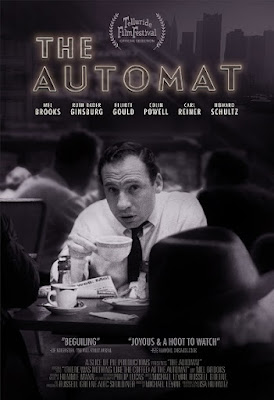For decades, Horn & Hardart automats helped New Yorkers and Philadelphians maintain their buying power during times of inflation. Their New Orleans-style chicory coffee was only a nickel and everything else in their locations was priced in increments of five cents. Their machines were exclusively tooled for nickels, so when they finally raised the price of coffee, they had to double it to ten cents. That was the beginning of the end, but Horn & Hardart had a good run, which Mel Brooks and other famous former customers look back on fondly in Lisa Hurwitz’s documentary, The Automat, which airs Tuesday night on TCM.
When Hardart teamed up with Horn, he thought introducing New Yorkers to NOLA chicory coffee would be a winning strategy—and it was, even for their early diner-style restaurants. However, when they adopted and perfected European automated serving techniques, their brand really took off. All Hurwitz’s interview subjects warmly laud the automats for the democratic environment. Visitors could often find millionaires seated next to homeless people there, much like New York’s mass transit. Unfortunately, in the 1960s, New York’s swelling homeless population contributed to Horn & Hardart’s downfall, because it looked like nearly all of them passed their time loitering at their automats.
However, the food was always good—especially during the Depression. At that time, Horn & Hardart bought in such volume, they could still offer quality food at affordable nickel prices.
Mel Brooks was definitely a fan. He isn’t just Hurwitz’s lead interview. He also wrote and performed “At the Automat,” the endearingly sentimental original song heard over the closing credits. His old crony Carl Reiner was also a regular, who sat for an automat interview before his death in 2020. There are reminiscences from other famous people, but some of the most interesting commentary comes from Starbucks CEO Howard Schultz, who explains how his childhood automat visits inspired his hospitality approach for the coffee chain. (Hearing him talk might make you wish he hadn’t been muscled out of the 2020 presidential race, especially considering the alternatives we were stick with.)




